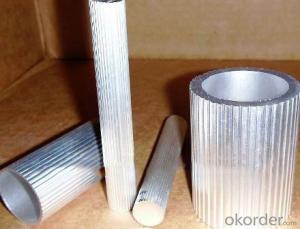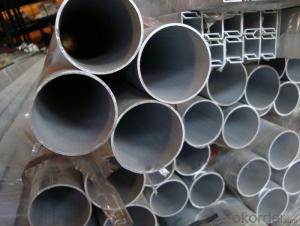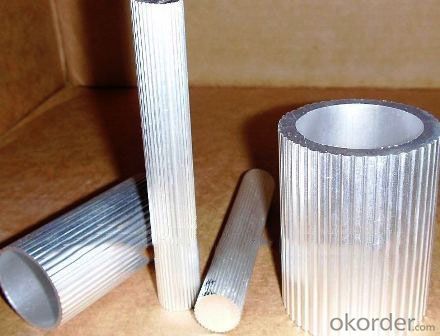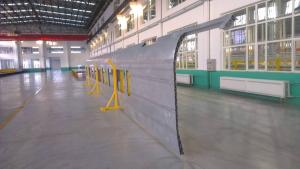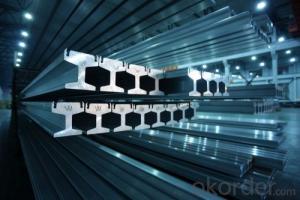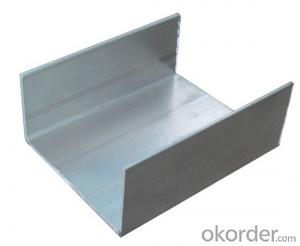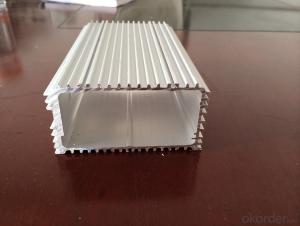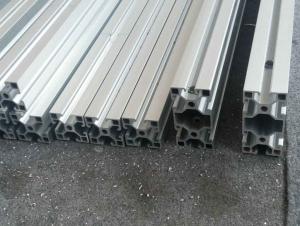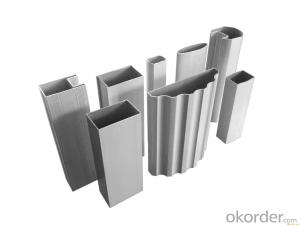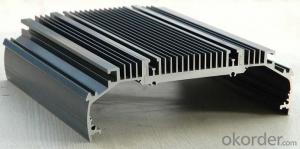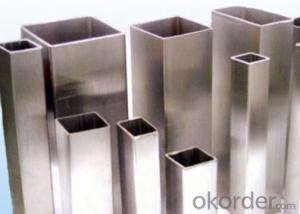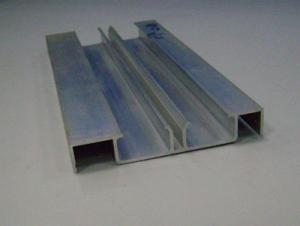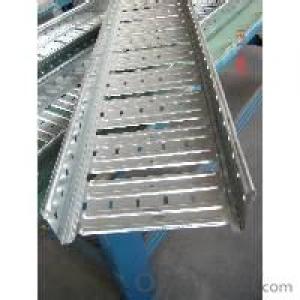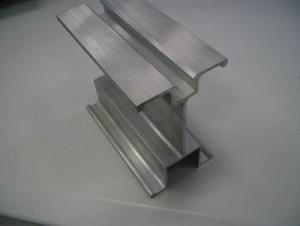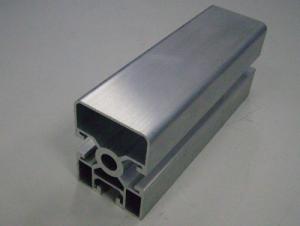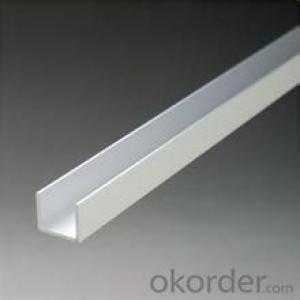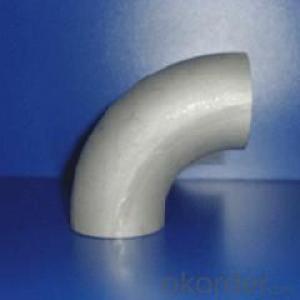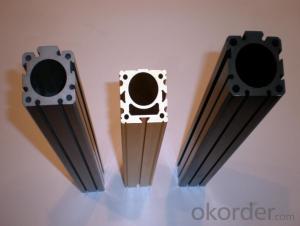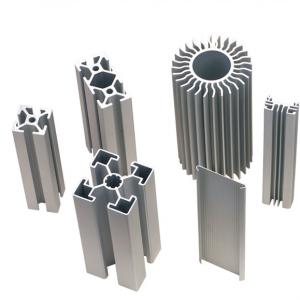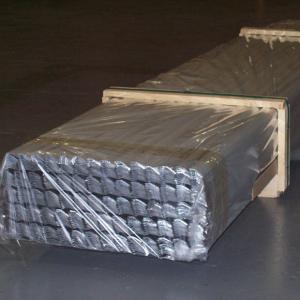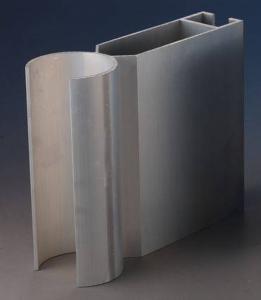Aluminum Extrusion Tube Profiles - Industrial Aluminum Profile
- Loading Port:
- China Main Port
- Payment Terms:
- TT OR LC
- Min Order Qty:
- -
- Supply Capability:
- -
OKorder Service Pledge
OKorder Financial Service
You Might Also Like
ALUMINUM INDUSTRIAL ALUMINUM PROFILE
Industrial aluminium profile
1)Material : 6063 6061 6060 and different aluminium alloy
2)Status:T4 T5 T6 or other special status
3)Surface treatment: mill finish, anodized sliver ,anodized bronze, anodized champagne, anodized black pearl, various power coating color, electrostatic sliver, electrostatic champagne, electrostatic golden, electrostatic titanium , machine polish sliver, machine polish bronze, wooden grain color, and Fluorocarbon spraying.
4)Annual capacity : 120000TON
5)Quality : China Nation Standard GB/T 5237 2008 (advanced class)
6)Use: can be widely using aluminium window, door, curtain wall, hand railing , normal aluminium profile, decorative and industrial aluminium profile
7)Advantage: Famous Brand reasonable&market price, soonest delivery and good after sale- service
8)Type of package:protection foam+heat contracted plastic film. / wooden packing / Metal pallet or depand on clientspecial requirement.
9)Payment term:T/T:30% of total value as deposite should paid by T/T within 3 days when confirmation ,and the remaining sum should be paid by T/T before delivery.L/C: 100% at sight
10)Delivery Day: 15-30days
11)Honor : CHINA FAMOUS TRADEMARK, CHINA TOP BRAND, ISO9001-2000, CHINA SQUARE&ROUND COMMITTEE DNV
- Q: Can aluminum profiles be used in the production of agricultural equipment?
- Aluminum profiles have the potential to be utilized in the manufacturing of agricultural equipment. The versatility and lightweight characteristics of aluminum provide numerous benefits for agricultural applications. Its resistance to corrosion is crucial when considering equipment that is exposed to outdoor conditions and various farming chemicals. Moreover, aluminum profiles have the capability to be easily molded and customized to meet specific design requirements, enabling the creation of intricate and functional agricultural equipment. The lightweight nature of aluminum also simplifies the transportation and handling of the equipment, resulting in reduced labor costs. Additionally, aluminum profiles are recyclable, making them an environmentally conscious choice for the production of agricultural equipment. In conclusion, incorporating aluminum profiles into agricultural equipment can enhance durability, efficiency, and sustainability within the farming industry.
- Q: What are the safety features of aluminum profiles in construction?
- Aluminum profiles in construction offer a range of safety features that make them a popular choice for various applications. First and foremost, aluminum profiles are lightweight yet durable, making them easy to handle and install while still providing structural integrity. This reduces the risk of accidents or injuries during the construction process. Additionally, aluminum profiles are non-combustible, meaning they do not contribute to the spread of fire. This is a crucial safety feature in construction, as it helps to minimize the potential for fire-related hazards and ensures the safety of occupants. Aluminum profiles also have excellent corrosion resistance properties. They are naturally resistant to rust and decay, which means they can withstand harsh environmental conditions and maintain their structural integrity over time. This is particularly important in coastal or humid areas where the risk of corrosion is higher. Furthermore, aluminum profiles can be designed to incorporate safety features such as non-slip surfaces or grooves for enhanced grip and stability. This is especially beneficial in applications where slip and fall accidents may occur, such as staircases or walkways. Aluminum profiles also offer excellent electrical conductivity, which can be advantageous when considering safety in electrical installations. Their high thermal conductivity helps dissipate heat efficiently, reducing the risk of overheating or electrical malfunctions. Lastly, aluminum profiles are recyclable, which aligns with sustainable construction practices. By using aluminum profiles, construction projects can contribute to reducing waste and environmental impact. Overall, the safety features of aluminum profiles in construction include their lightweight yet durable nature, non-combustibility, corrosion resistance, ability to incorporate non-slip surfaces, excellent electrical conductivity, and recyclability. These features combine to create a safe and sustainable construction material choice.
- Q: Are aluminum profiles suitable for use in exterior wall cladding systems?
- <p>Yes, aluminum profiles are commonly used for exterior wall cladding systems. They offer several advantages, including corrosion resistance, low maintenance, and durability. Aluminum profiles are lightweight, which makes them easy to install, and they can be designed to provide thermal insulation. Additionally, they can be powder-coated in various colors, offering aesthetic flexibility. However, it's important to ensure that the profiles meet the necessary standards for weather resistance and structural integrity.</p>
- Q: What are the potential safety issues that might arise from using aluminum profiles in construction projects?
- <p>While aluminum profiles are generally safe and widely used in construction due to their strength, lightweight, and corrosion resistance, there are a few safety concerns to consider. These include ensuring proper installation to prevent structural failure, avoiding sharp edges that could cause injury, and ensuring that the aluminum does not react with other materials in a way that could compromise safety. Additionally, it's important to use aluminum profiles that meet building codes and standards to ensure they can withstand the expected loads and environmental conditions.</p>
- Q: Can aluminum profiles be used in food-grade applications?
- Yes, aluminum profiles can be used in food-grade applications. Aluminum is a non-toxic, lightweight, and corrosion-resistant metal that is commonly used in the food industry. It is often used to fabricate food processing equipment, such as conveyor systems, tanks, shelves, and frames. Aluminum profiles can also be used in the construction of cleanrooms and other sanitary environments where food is processed or stored. Additionally, aluminum is easily cleaned and sanitized, making it a suitable material for food-grade applications. However, it is important to ensure that the aluminum profiles used are specifically designed for food-grade applications and comply with relevant regulations and standards to ensure the safety and quality of the food being processed or stored.
- Q: What is aluminum profile?
- Aluminum bars: aluminum bars are obtained by hot extrusion and extrusion so as to obtain aluminum materials of different cross section. The production process of aluminum profile mainly includes three processes: casting, extrusion and coloring. Among them, the color mainly includes: oxidation, electrophoresis coating, fluorine carbon spraying, powder spraying, grain transfer and other processes. Aluminum profile features: 1) corrosion resistance; aluminum profile density is only 2.7g/cm3, about steel, copper or brass density (7.83g/, cm3, 8.93g/, cm3), 1/3. Aluminum can show excellent corrosion resistance in most ambient conditions, including air, water (or brine), petrochemical, and many chemical systems. 2) conductivity; aluminum profile is often chosen because of its excellent electrical conductivity. On the basis of equal weight, the conductivity of aluminum is nearly two times that of copper. 3) thermal conductivity; the thermal conductivity of aluminum alloy is about 50-60% of copper, which is beneficial to the manufacture of heat exchangers, evaporators, heating appliances, cooking utensils, as well as the cylinder head and radiator of automobiles.
- Q: High compartment aluminum profiles are generally divided into several specifications, what are the attributes?
- Aluminum alloy profiles are basically no GB non-standard, but the state has special specifications for architectural aluminum profiles, mainly on the thickness of the material, materials and so on.Each aluminum alloy profiles manufacturing enterprises are basically similar products, but in specific structure of the discrepancy. But such as the more general series, such as GB 50, 868, and 90, these are basically the same.The 80 series and the 60 series refer to the aluminium alloy profiles with widths of 80 mm and 60 mm.
- Q: Are aluminum profiles suitable for automotive body panels?
- Yes, aluminum profiles are suitable for automotive body panels. Aluminum is a lightweight and strong material, making it ideal for improving fuel efficiency and enhancing overall vehicle performance. Additionally, aluminum profiles offer excellent corrosion resistance, durability, and design flexibility, making them a popular choice for modern automotive applications.
- Q: Explain the various methods used to connect aluminum profiles in construction.
- <p>In building construction, aluminum profiles can be joined together using several methods: 1. Mechanical fastening, which includes bolts, screws, and rivets. 2. Welding, which permanently fuses the profiles together using heat. 3. Adhesive bonding, which uses specialized adhesives to bond the profiles. 4. Clipping or snap-fit connections, which use spring-loaded clips or interlocking parts. 5. Mortise and tenon joints, where one profile has a projection that fits into a hole in another. 6. Socket and pin connections, where a pin is inserted into a socket on the profiles. These methods can be used individually or in combination, depending on the specific requirements of the construction project.</p>
- Q: Can aluminum profiles be used in the production of medical devices?
- Yes, aluminum profiles can be used in the production of medical devices. Aluminum is a lightweight and corrosion-resistant material that offers several advantages for medical applications. It can be easily machined, formed, and welded into various shapes and sizes, making it suitable for creating precise and complex components required in medical devices. Aluminum profiles also have excellent conductivity properties, which is essential for devices that require electrical connections. Additionally, aluminum is non-toxic, non-magnetic, and does not release harmful substances, making it safe for use in medical settings. It is widely used in the production of medical devices such as surgical instruments, hospital bed frames, wheelchair components, IV stands, and many others.
Send your message to us
Aluminum Extrusion Tube Profiles - Industrial Aluminum Profile
- Loading Port:
- China Main Port
- Payment Terms:
- TT OR LC
- Min Order Qty:
- -
- Supply Capability:
- -
OKorder Service Pledge
OKorder Financial Service
Similar products
Hot products
Hot Searches
Related keywords
